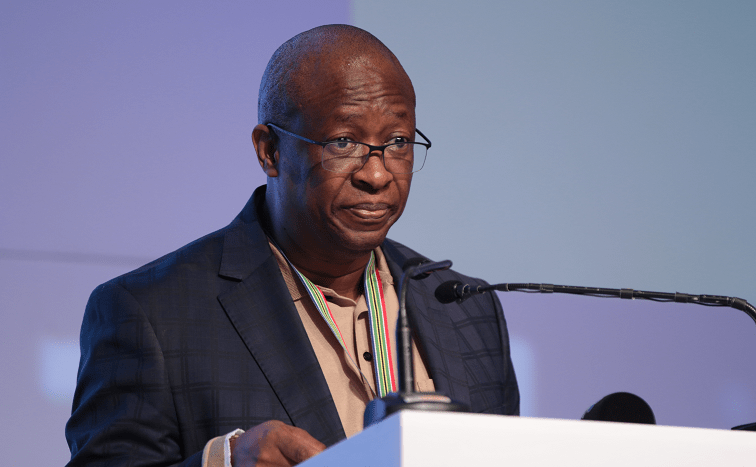As South Africa heads towards its milestone seventh democratic election, maintaining electoral integrity remains a priority.
The Independent Electoral Commission (IEC) continues to play a central role in ensuring elections are free, fair and credible.
However, recent events threaten to undermine this process. The IEC sought to address these concerns in a media briefing Monday night.
Just hours after the IEC deadline for party submissions, social media was abuzz with news that the candidate lists of the African National Congress (ANC) and the newly formed political party uMkhonto we Sizwe (MK) had been leaked.
In response, ruling party Secretary-General Fikile Mbalula sent a letter to the IEC demanding an investigation into the unauthorized disclosure of information.
Afterwards, the National Election Commission investigated and found that the leak was internal. The responsible IEC staff members have been asked to submit to the commission why they should not be removed.
Chief Electoral Officer Sai Mamabolo said: “The Commission may submit a preliminary report which states: “As a result of our investigation, the source of the disclosure is the workstation used to prepare and save the report. It's been narrowed down.'' The report was then deleted from the workstation. Earlier today, that workstation was secured and imaged in the presence of an employee whose credentials were used to create the report. ”
This isn't the only reason IEC is getting attention. The Democratic Alliance (DA) has sought foreign intervention despite maintaining a clean record in terms of its ability to hold elections.
The party sent a letter to U.S. Secretary of State Anthony Blinken asking the U.S. government to monitor the May 29 vote. The official opposition party has received backlash from various quarters following the letter.
Mamabolo said the DA's approach was unconventional and stressed the need to respect South Africa's electoral democratic process.
“We are aware of the fact that the letter from the Prosecutor’s Office was addressed to executives of other countries. Normally the observation process does not work this way. In many cases, the oversight is at the AU level. , at multilateral levels such as SADC level and Commonwealth level, and in the past these multilateral institutions have been invited to monitor elections. All role players have a stake in the democratic process of their respective countries. We need to recognize the need to maintain integrity.”
As the election approaches, political parties are expected to take a variety of legal stances. The Electoral Commission said it would abide by the court ruling, which is expected to decide how the matter between the ANC and Umkhonto Wesizwe party will proceed.
The two political groups will fight it out in the election tribunal next week. The ruling party claims that the MK party's registration is illegal.
The MK party was registered by Jabulani Khumalo in September last year and will face general elections in May. ANC lawyers previously wrote to Mr Khumalo asking him to stop using the uMkhonto we Sizwe logo and trademark. The ruling party claims that using this could lead the public to believe that the MK party is affiliated with the ruling party.
The MK name was associated with the armed wing of the ANC during apartheid. Mamabolo said the electoral body would take direction from the court.
“We are under the jurisdiction of the court and have said everything there is to say regarding the motion before the court. Regardless of the manner in which the court decides this matter, we will take that as our position moving forward. ”
Meanwhile, Mamboro also stressed that the voter rolls will be certified on Tuesday and are expected to include more than 27.7 million voters.
The certified list will be published by the IEC and will be available in all state and all local government offices.

